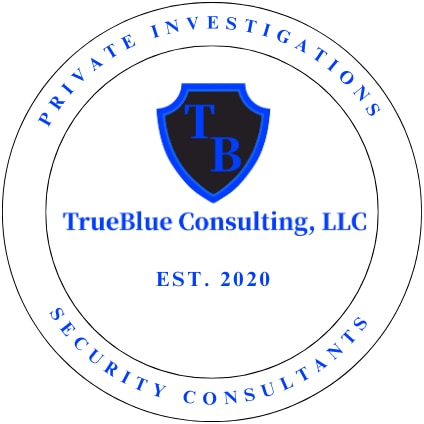Surveillance is a cornerstone of private investigations, providing critical evidence for legal cases, fraud investigations, and personal matters. However, conducting surveillance is far from straightforward. Private investigators (PIs) encounter numerous challenges that can complicate their efforts to gather accurate, admissible evidence. For law firms partnering with PIs, understanding these complexities is essential to ensure successful outcomes. This blog explores the difficulties PIs encounter during surveillance, why law firms should care to understand, and practical solutions to achieve investigative goals which only further support your case.
The Challenges Private Investigators Face in Surveillance
Subjects Blending into Their Environment
Subjects often evade detection by blending into busy urban settings or leveraging familiar surroundings. In densely populated areas like New York City, a target can easily disappear into a crowd, enter a building, or use public transportation to break surveillance. This requires PIs to maintain sharp observational skills and adapt to dynamic environments while remaining discreet.
Legal and Ethical Constraints
PIs must operate within strict legal boundaries to ensure evidence is admissible in court. Laws on privacy, trespassing, and recording vary by jurisdiction, and non-compliance can jeopardize a case. For instance, while New York is a one-party consent state for recording conversations (meaning only one party needs to consent), PIs must still avoid violating privacy laws, such as recording in private settings without permission. Balancing thorough investigation with legal compliance is a constant challenge.
Unpredictable Subject Behavior
Subjects rarely follow predictable routines. They may change routes, alter schedules, or engage in erratic behavior, making it difficult for PIs to maintain consistent surveillance. For example, a target might suddenly visit an unexpected location or alter their daily patterns, requiring PIs to think on their feet while avoiding detection.
Resource and Time Constraints
Surveillance is resource-intensive, often requiring multiple investigators, specialized equipment, and extended hours. Budget limitations from clients, including law firms, can restrict the scope of surveillance, potentially compromising results. Additionally, tight deadlines may pressure PIs to deliver findings before sufficient evidence is gathered.
Adhering to Vehicle and Traffic Laws and Environmental Factors
When following targets, PIs must comply with vehicle and traffic laws, such as speed limits, traffic signals, and parking regulations, to avoid legal violations that could compromise the investigation or attract attention. For example, a PI cannot run a red light to keep pace with a target, which may result in losing visual contact. Additionally, environmental factors like heavy traffic or adverse weather conditions (e.g., rain or snow) can further complicate surveillance efforts.
Subjects Suspecting Surveillance and Making Evasive Maneuvers
Some targets may know or suspect they are under surveillance, leading them to employ evasive maneuvers to confirm if they are being followed. For instance, a subject might make sudden U-turns, enter multiple locations in quick succession, or double back on their route to spot a tail. These tactics challenge PIs to maintain surveillance without being detected, requiring advanced skills and strategic coordination.
Why Law Firms Should Understand These Complexities
Law firms rely on PIs to provide evidence that strengthens their cases, whether for litigation, due diligence, or client defense. Failing to appreciate the challenges of surveillance can lead to unrealistic expectations, miscommunication, and suboptimal outcomes. Here is why understanding these difficulties matters:
- Setting Realistic Expectations: Knowing the hurdles PIs face helps law firms set achievable goals and timelines. For example, expecting uninterrupted surveillance when a target suspects they are being followed may be unrealistic.
- Ensuring Admissible Evidence: Legal compliance is critical. Law firms that understand the legal constraints PIs navigate can better align their strategies to ensure evidence holds up in court.
- Optimizing Budget and Resources: By recognizing the resource-intensive nature of surveillance, law firms can allocate budgets more effectively, prioritizing key aspects of the investigation.
- Building Stronger Partnerships: Clear communication between law firms and PIs fosters trust and collaboration, leading to more successful investigations.
Reasonable Solutions for Successful Surveillance
To overcome these challenges and achieve investigative goals, law firms and PIs can adopt the following strategies:
- Leverage Advanced Technology
PIs can use innovative tools like discreet cameras, high-resolution cameras with ample zoom capabilities, GPS tracking (where legally permissible), License Plate Recognition (LPR) systems, and data analytics to enhance surveillance while minimizing detection risks. LPR checks can help identify a target’s vehicle and track its movements over time, revealing patterns or frequented locations that aid in planning surveillance. Law firms should support investments in having the PI firms conduct their own comprehensive background reports on subjects, as their access to various subscription platforms which would normally have the latest information on individuals. Reputable PI firms will add a 15%-20% surcharge to run reports, but it is worth the investment. - Conduct Thorough Pre-Surveillance Research
Before surveillance begins, PIs should gather detailed intelligence on the target’s habits, routines, and environment. This includes conducting License Plate Recognition (LPR) checks to uncover routine behaviors, such as regular visits to specific locations, which can help predict a target’s movements. A seasoned investigator knows to conduct “advances” on surveillance cases, whereby they nearly ever have to leave the office to conduct them, as Google Maps can display most of the surrounding areas to any given valid address, unless it is called for. Law firms can assist by providing relevant case details, such as known associates or frequented locations, to streamline the process and enhance efficiency. By providing more intel or by supporting the PI firm to conduct due diligence on a subject and or their associates, it gives the PI more to work with and only supports the end results. - Utilize a Team of 2-3 Investigators
Deploying a team of 2-3 investigators, with 3 being the optimal number, significantly improves surveillance outcomes. A team of 3 provides greater coverage, allowing PIs to monitor multiple angles, follow a target through complex environments, and rotate positions to avoid detection. This approach is especially effective against evasive targets, reducing the risk of losing them in traffic or crowded areas and minimizing the chance of being noticed. Law firms should prioritize budgeting for a small team to maximize success. - Communicate Effectively and Plan for Flexibility
Regular communication between PIs and law firms ensures alignment on objectives, budgets, and timelines, while allowing for adaptability to unforeseen challenges like a target’s evasive maneuvers or traffic disruptions. Law firms should clearly communicate case priorities, and PIs should provide prompt updates on challenges and progress, enabling flexible adjustments to timelines or strategies as needed. - Hire Experienced Investigators
Skilled PIs with expertise in local laws, including vehicle and traffic regulations, and surveillance techniques are better equipped to manage complex cases, including those involving suspicious targets. Law firms should partner with reputable firms like TrueBlue Consulting, LLC, known for their professionalism and purposeful approach. - Prioritize Legal Compliance
PIs must stay updated on jurisdictional laws and privacy laws, and law firms should work with investigators who prioritize ethical practices. Jointly reviewing legal requirements before surveillance begins can prevent costly mistakes.
Surveillance is a critical yet challenging aspect of private investigations, requiring skill, patience, and strategic planning. For law firms, understanding the obstacles PIs face—such as targets blending into environments, legal constraints, evasive maneuvers by suspicious subjects, and the need to comply with vehicle and traffic laws—is key to fostering successful partnerships and achieving case objectives. By leveraging advanced tools like LPR systems, deploying a team of 2-3 investigators (with three being optimal), and prioritizing compliance, law firms and PIs can overcome these hurdles and deliver results that stand up in court.
At TrueBlue Consulting, we specialize in navigating the complexities of surveillance to provide law firms with reliable, admissible evidence.
Schedule a free consultation and discuss how our experienced investigators can deliver the evidence you need to strengthen your case.


